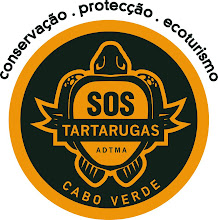Even though the deadline has passed, if you have the qualities & experience for these paid places, please send us your application. We will keep accepting applications until we find the right person. Click on the links for full descriptions.
 |
| Tourism Rangers work hands on at the hatchery |
Tourism Ranger
Giving information to visitors to the hatchery and guiding guests on turtle walks is a key part of this job, but it is still hands-on with turtles. Tourism Rangers go through the same training as Wildlife Rangers and perform many of the same duties such as collecting data and relocating nests. You need to be outgoing and have good communication skills. Preferred languages are English, German, French, Dutch & Italian.
Tourism Manager
Similar to above but should have some experience of working with tourists or in a customer facing role. Must also have very good organisational skills.
 |
| Serra Negra |
Camp Coordinator
Take charge of the most important beach on Sal for nesting turtles. Beautiful, isolated Serra Negra is where our camp is situated. You should have previous experience working with turtles and should be able to speak either Capeverdean Kriolu, Portuguese or Spanish.
Download the application form here. (This takes you to Google Docs - click on File and Download in the drop down menu)





